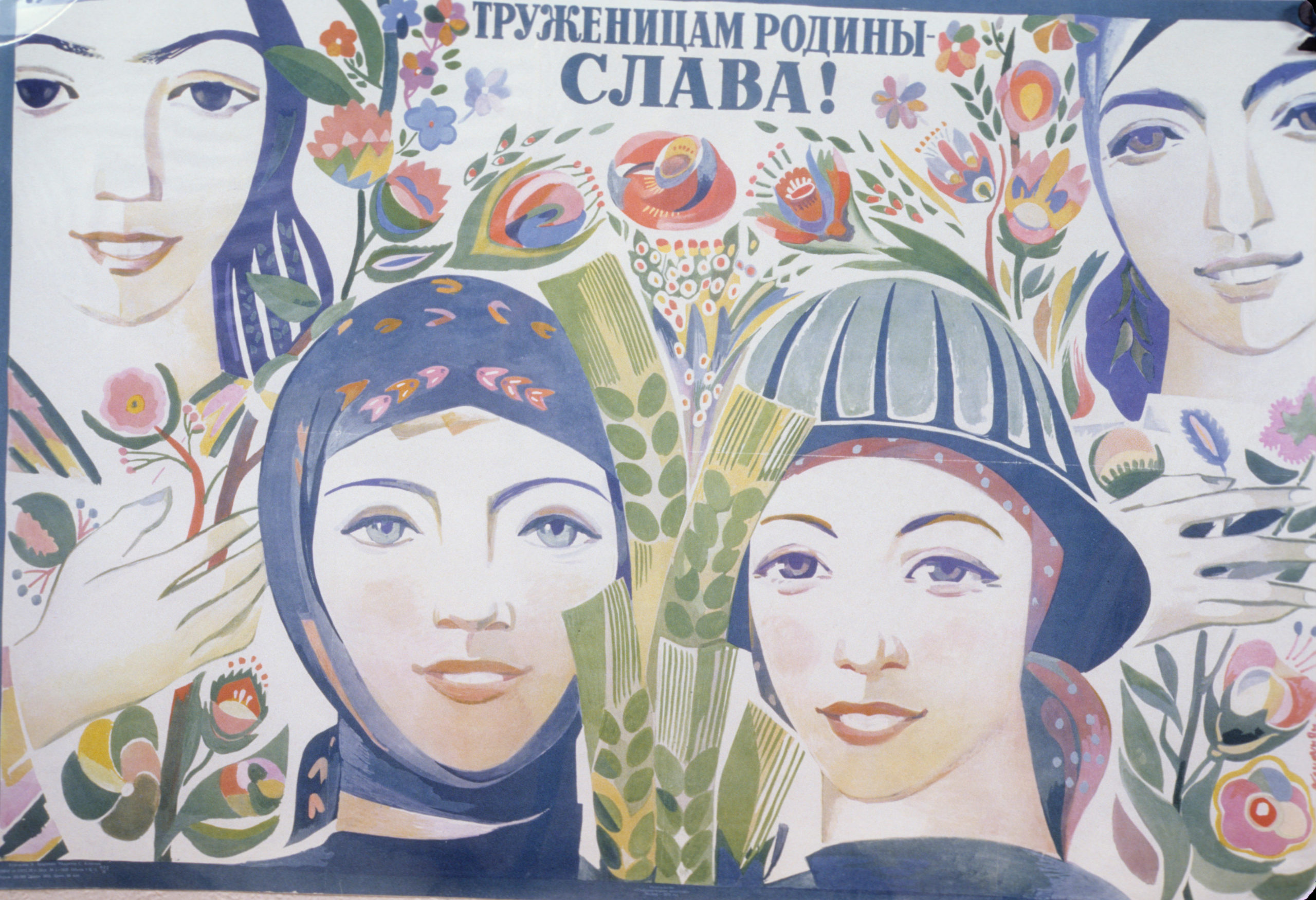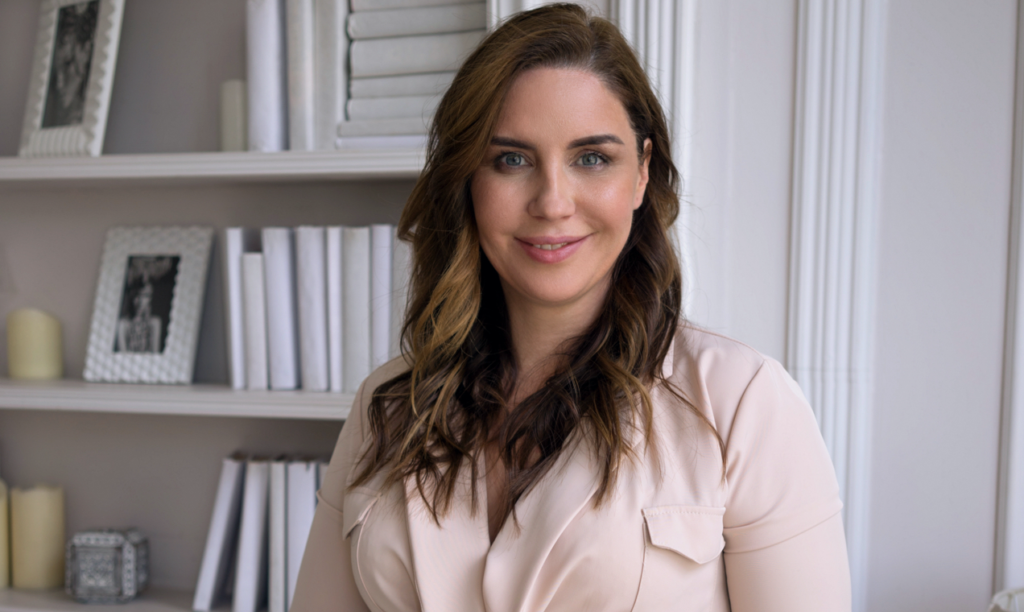What keeps women trying to juggle career, life and family at the top of their game? Ekaterina Kozinchenko has a simple answer: remember to give yourself a break.
When it comes to managing a busy life, Kozinchenko knows what she’s talking about. At the time of this interview, carried out over Zoom in May, Kozinchenko is in the middle of moving herself, two dogs, and the two youngest of her four children from Moscow to London to take up a senior executive role at Accenture.
The last time we met in person, in pre-COVID times, was at the London launch of WomanID, the women’s mentoring project she founded in her home country of Russia and which now has a global reach. Navigating the intricacies of quarantine, paperwork, a new workforce and finding accommodation in the midst of a global pandemic would be anyone’s undoing, but Kozinchenko looks remarkably serene.
She admits that the last year has challenged every aspect of her life. COVID-19, and a year of off-and-on lockdowns in Moscow, wreaked havoc with her plans. Much of it was marked by grief. She lost her father during the pandemic and was only able to see her two oldest children, who study in the U.S., once over the course of a whole year. Her move to London was delayed by several months. But this turmoil, she says, has also been good for her, reminding her to apply the principles she shares with all the women she mentors to her own life and imbuing it with a new sense of calm.
Her confidence is infectious. It’s easy to see why mentoring has come so naturally to Kozinchenko; within ten minutes of our conversation, I’m hanging onto her every word.
“Things in life will never be as perfect as you want them to be,” she tells me. “You just have to do your best, and accept that even if things aren’t perfect, that’s ok.”
This belief that women could succeed while staying true to themselves led Kozinchenko to set up Woman ID, a platform providing women with training, coaching and study, so that they can be “the very best they can be.” Through online development programmes and motivational courses, personalised coaching and mentoring and access to community networking channels, it provides women in every stage of their career with the support they lack in the corporate world. While the demands of her new role at Accenture have led her to step aside from managing the organisation, Kozinchenko continues to help mentor wherever she can. She advised the latest project for women in Ugra, Siberia, recently received a grant from the Russian government.
The need to ensure women are given the tools to fulfil their potential is not just the key to a healthy society, Kozinchenko argues, but to economic success. While most Western countries, however imperfectly, offer women some chance to balance career and family life, it is an area in which emerging economies fall far behind.
It’s a debate that’s particularly relevant to the former Soviet Union. While the collapse of communism often led to economic booms, social structures also changed, which did not always benefit women. For all its restrictions, the Soviet system guaranteed childcare, accommodation, and an expectation that women were part of the workforce. The governments that emerged from its collapse did not make setting policies to ensure women kept their role in the workplace a priority.

“This is one of the things which I personally respect the Soviet Union for,” Kozinchenko says. “We were told, and when I grew up, in my age, right, so people of my age, we all grew up with the mindset that we would work one day. The good thing about this was that all doors were open. It was a discussion that happens within society.
Unfortunately, what happened after the fall of the Soviet Union in Russia and in most CIS countries is that many women took a step back. Which I think was a big loss for us as a society. It was one of the things we were supposed to protect; we did not.”
This has led to a societal shift, Kozinchenko says, which has economic consequences, creating both a brain drain, with high flying women seeking out jobs elsewhere, and an under-utilised workforce.
Though she notes that some Western nations, such as Japan, suffer the same problems, she says the failure to nurture women in the workplace is particularly noticeable in economies such as Russia’s, where she spent most of her career. If the government does not take steps to change that, Kozinchenko argues, the country will either lose its female high-flyers to other countries, or fail to develop them at all.
“It’s very difficult for businesses in countries like Russia to take the right decisions because we don’t have these rules in place. And without them, this shift just doesn’t happen.”
“Equality does not mean that rules for everyone should be the same. As women, we need additional benefits. This is normal: we produce children.”
“For countries, there is a high economic cost from losing these women who could otherwise continue to make a useful contribution to the workforce. What will happen with the future with globalisation is that the best women will leave for other countries because they can get a better deal.
Governments need to do more. If there are rules implemented, quotas, ideas implemented about promoting women, it will work. There is no easy way to achieve this.”
For women individually, Kozinchenko says, the key to finding these opportunities is education. For companies, it is implementing the right policies. Kozinchenko’s mentoring advice reflects the good advice she herself received in life: her grandmother pushed for her mother to get a good education, and both pushed Ekaterina to pursue a career. Much of that was developed working for foreign companies.
“The more we educate women about this, the more tools we will give them, the more their mindset will get them to seek out the best opportunities.”
“What I always tell women is that they have to choose the best option. If there is a better option outside your current company, take it. If there is no policy of promoting women in your company, you could be stuck forever.”
The COVID-19 pandemic has shown that the gender gap remains a problem in even the most developed economies despite decades of fighting for equality. The crisis hit women particularly hard. The charity Oxfam estimates that the pandemic cost women -overrepresented in low-paid, precarious sectors like retail, tourism and food services, more than 64 million jobs, or $800 billion in lost income in 2020 alone. Their workplace productivity was also hit hard, as restrictions forcing many to work from home laid bare the disproportionate share of domestic tasks shouldered by women.
“I hope the pandemic has only set us back for some time,” Kozinchenko says. “But there’s no denying it has hit women hard.”
“The only advice I can give to all women is this: for kids, one year is nothing. They still have their whole life, and the flexibility of any kid is phenomenal. But for us, for each of you, you need to take care of yourself, first of all, put yourself first. Because that’s one thing women rarely do.”

